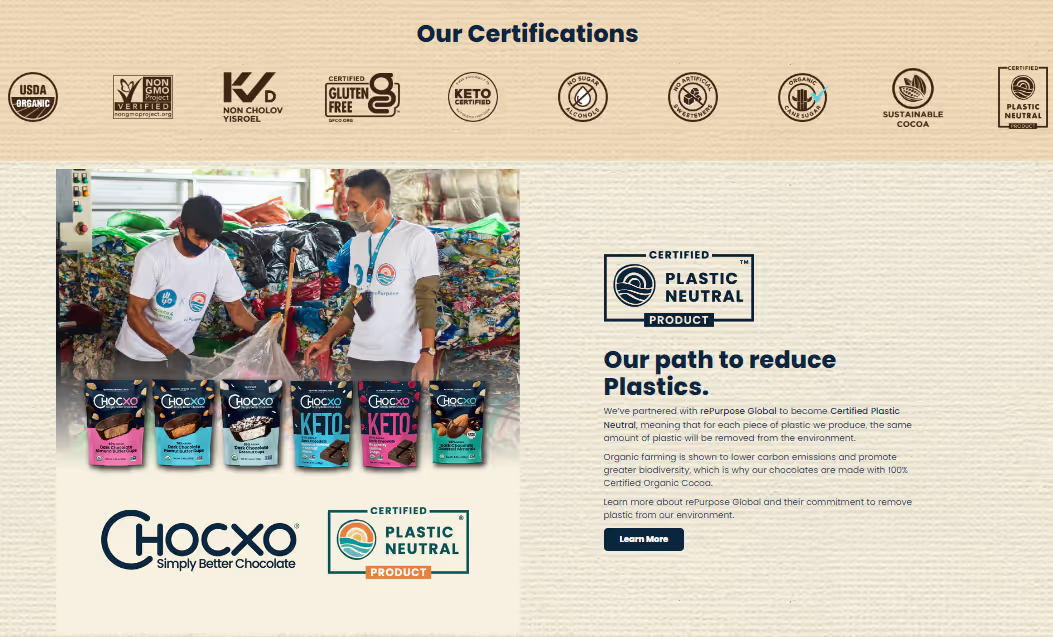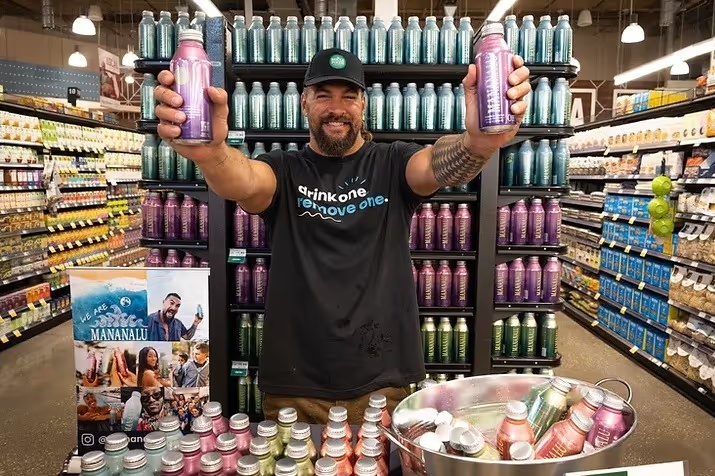This blog - complete with additional details and annexes - is available as a pdf download here.
Plastic pollution: now is the time to act
The world is drowning in plastic. 11 million metric tons of plastic flow into the oceans each year. The extent of plastic pollution has profound impacts on human and animal health. With microplastics now so prevalent, we might be ingesting as much as a credit card’s worth of plastic every week.
Plastic also contributes to the climate crisis, with plastic manufacture and incineration responsible for around 5% of global greenhouse gas emissions.
Though there appear to be strides forward, current commitments are not nearly enough to reverse increases in pollution. We already have a plastic waste crisis, and need immediate action to prevent this situation becoming increasingly catastrophic.
The good news for businesses is that action doesn’t have to come at a cost. In fact, as the rest of this blog suggests, it is likely to increase revenues. Here are 6 reasons why.

1. Sustainable action drives sales and customer loyalty
Customers are waiting for brands to take action on plastic waste. Plastic litter in the ocean is the number one environmental concern for consumers - a higher proportion say they are concerned about plastic litter than say they are worried about deforestation or global warming. rePurpose Global’s own research in 2023 found that three-quarters of US adults are concerned about global plastic pollution (76%)1.
This concern is being translated into action. Consumers are looking for more sustainable products. rePurpose Global’s research finds that four in five US adults say they are more likely to buy a product if it “removes ocean-bound plastic” (78%).

It might be tempting to dismiss survey results as wishful thinking, but consumers’ increasing willingness to buy more sustainable products is evident beyond hypothetical research. Sustainability-marketed products grew 2.7 times faster than those without sustainable credentials between 2015 and 2021.
A Capgemini survey of senior executives in consumer products businesses, found that three quarters of executives say that sustainability leads to increased customer loyalty (77%), and almost two-thirds agree that sustainability initiatives helped boost revenues (63%).
2. Customers will pay more for products that take action on plastic waste
Not only are consumers supporting brands and products that take environmental action through purchasing preference, many are also prepared to pay a premium for .
Academic research in 2022 found that, for one product, US consumers are willing to pay 17.6% more for a product with the rePurpose Global plastic action claim than the same product without the claim.
This corresponds to other findings around willingness to pay. Nearly two-thirds of Americans are willing to pay more for sustainable products (64%), and as many as 2 in 5 US consumers would pay an average premium for sustainable products of 37%.
3. Preventing plastic pollution supercharges marketing efforts
Research has shown that ethical and sustainable business practices enhance a company’s reputation. One of the major benefits of investing in action on plastic waste is that it opens a unique, impactful, and cost-effective new stream of marketing opportunities.
For brands working with rePurpose Global, having access to our full communication toolkit of data, logos, photos, videos, stories from waste workers, and further communications support provides a wealth of exciting marketing materials.
For example, SodaStream based an Earth Day campaign around their work with rePurpose Global, sharing a video that has so far accumulated over 1 million views.

Further examples of how brands use the partnership and rePurpose Global's communication toolkit can be accessed through this link (also at the top and bottom of this blog).
4. Your employees care about plastic waste too
Increasing sales, revenues, and customer loyalty is already a compelling case, but brands can also generate ROI on environmental action through improved employee recruitment, retention and performance.
Companies with environmental action are attractive to employees. Over two thirds of potential workers say they’re more likely to accept a job with an organization they consider to be environmentally sustainable (69%). Roughly half of workers would accept a lower salary to work for sustainable companies (48%).
rePurpose Global’s research1 finds that half of US adults say it’s important for them to work for a company that takes action on plastic waste (50%). This is more likely to be true of adults aged 18-34, with 57% agreeing that this is important for them.
5. Retailers and partners want to work with sustainable brands
Of course, it’s not just employees that want to work with more ethical and impactful businesses. Many other stakeholders - such as businesses, retailers, and investors - prefer to partner with sustainable companies. Some even have explicit policies to do this, and programs like Target’s Target Zero and Amazon’s Climate Pledge Friendly show that retailers are prioritizing planet-friendly products.
Being able to talk about your brand’s plastic waste recovery can open doors – many rePurpose Global partner brands say that the partnership helps to move conversations with retailers forward. Mananalu’s work with rePurpose Global played a key role in their products being stocked in major US retailers. For example, the official press release says:
“The brand’s commitment to combat plastic pollution aligns perfectly with Whole Foods and Sprouts’ dedication to providing natural and organic products.”
Brands partnering with rePurpose Global have won recognition and awards for their sustainability actions. Recent successes for Riverside Natural Foods and Nature’s Logic and No Evil Foods’ inclusion in the top 50 companies driving positive environmental impact all reference their action on plastic pollution through rePurpose Global.

6. Action now avoids costs in the future
Businesses increasingly face financial, customer, and regulatory pressures to become more sustainable. In fact, momentum for global producer responsibility on plastic has never been stronger. Bans and restrictions on plastic are already being introduced. A United Nations Plastic Treaty will be signed in 2024, and will prompt further action.
Without action now, businesses may have to pay plastic taxes or extended producer responsibility (EPR) fees to cover the cost of plastic waste management.
Negative ROI? If businesses don’t take action…
This blog has looked at the positives of funding action on plastic waste, and walked through 6 reasons why it can help increase revenues and generate a return on investment. But let’s think about the flip side: imagining the harm that might come to a business that fails to get on board with action on the plastic crisis.
- With brands that take action driving sales, brands that fail to act will miss out on sales and lose market share. Brand and reputational damage is caused from inaction, as people turn away from products contributing to plastic pollution.
- Brands will also continue to pay for expensive, but less effective, marketing efforts - missing out on the impactful resources, stories, and data that are on offer for brands acting on plastic waste.
- Furthermore, stakeholders are less excited about partnering with the businesses that fail to take action on plastic waste. Employees are less satisfied and less motivated, and retailers and other businesses choose more sustainable brands to partner with.
- Failing to prepare and act now, also means there is a threat of environmental regulations costing your business money in the future.
Finally, and most importantly, the business will likely continue contributing to an escalating environmental crisis. Even if there are ambitious targets to reach zero plastic use, while the system remains broken, that’s the same as essentially committing to causing harm for a set time.
No plastic strategy is complete without addressing the pollution that is already being caused.
—
The full version of this blog - complete with additional details and annexes that include marketing examples - is available as a pdf download here.
For more information about rePurpose Global, please visit our website: https://repurpose.global/
Footnotes:
1 - Research information: rePurpose Global conducted a survey in June 2023 of 1,102 US adults representative of the general population, via Savanta.


.png)
.avif)

.jpg)






